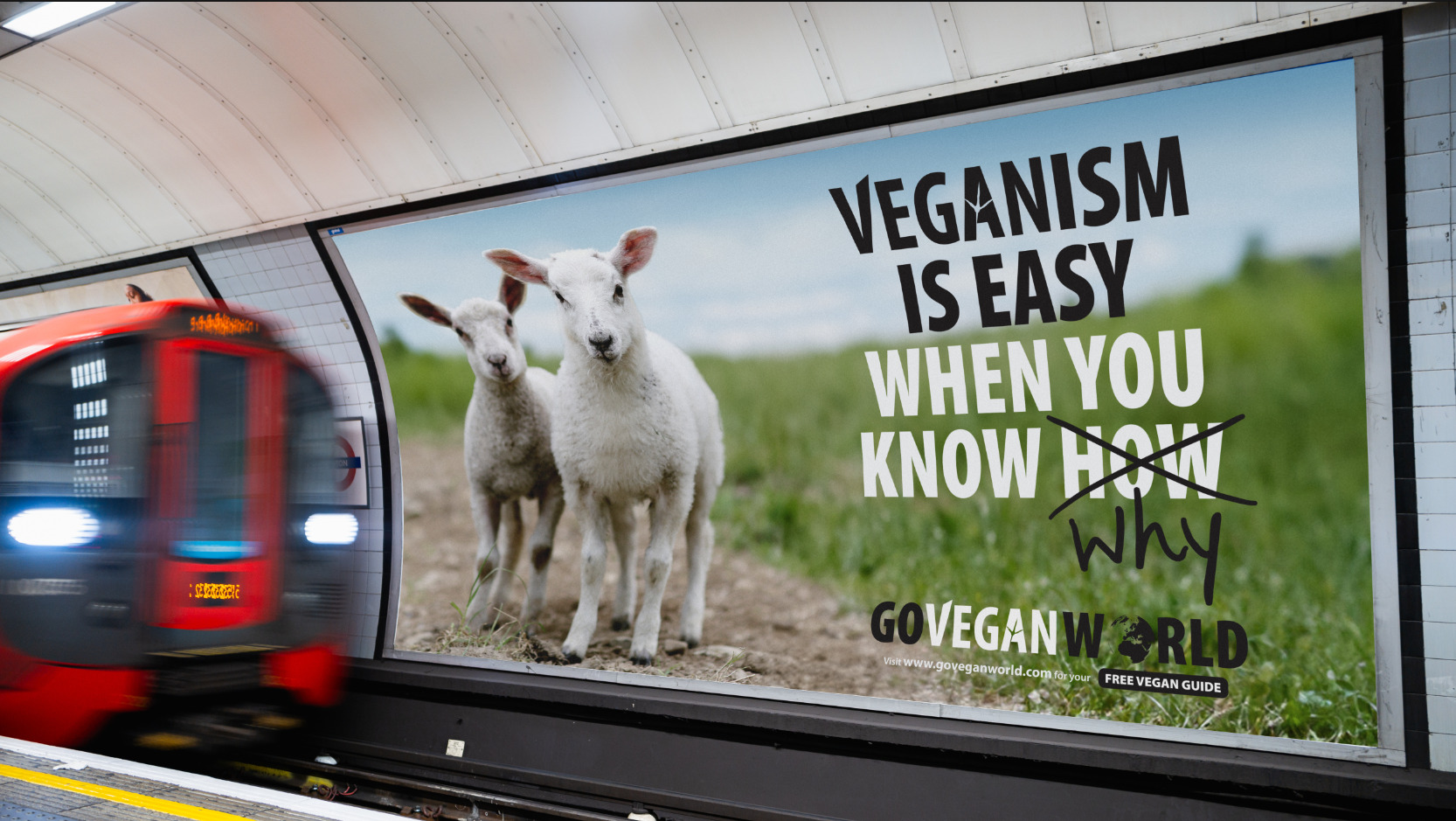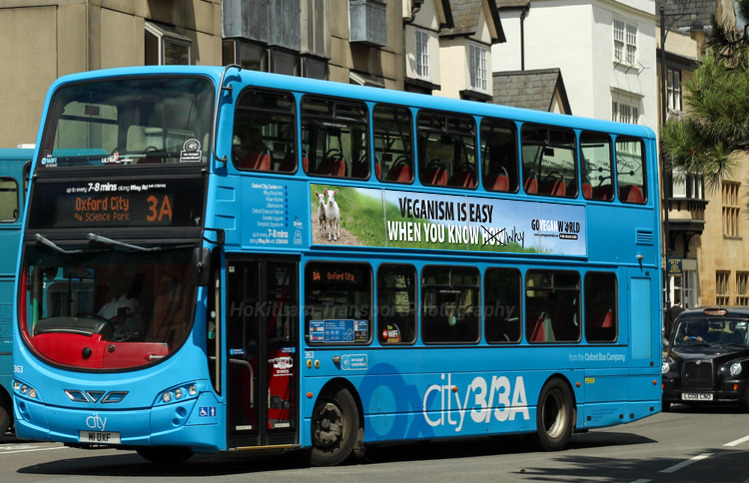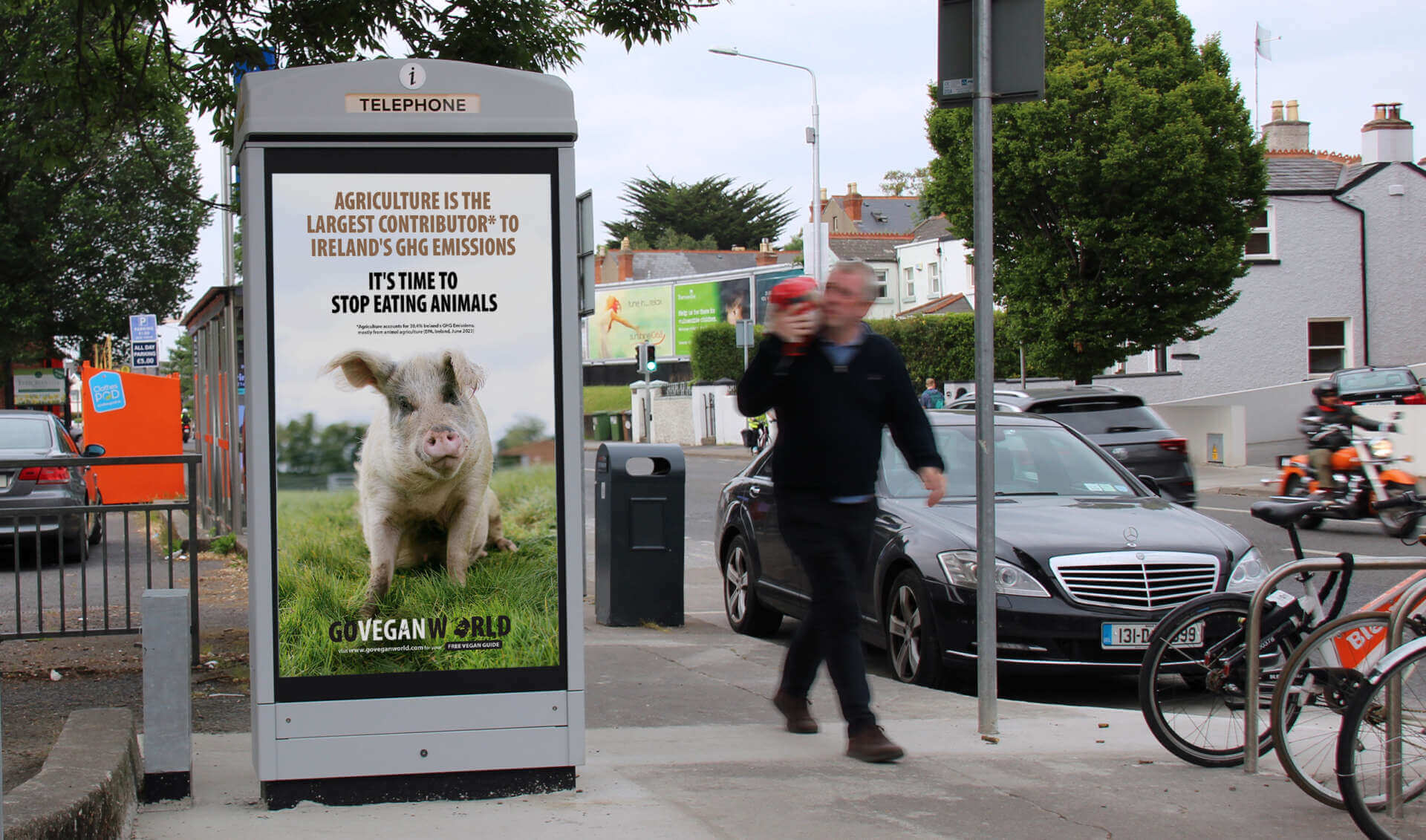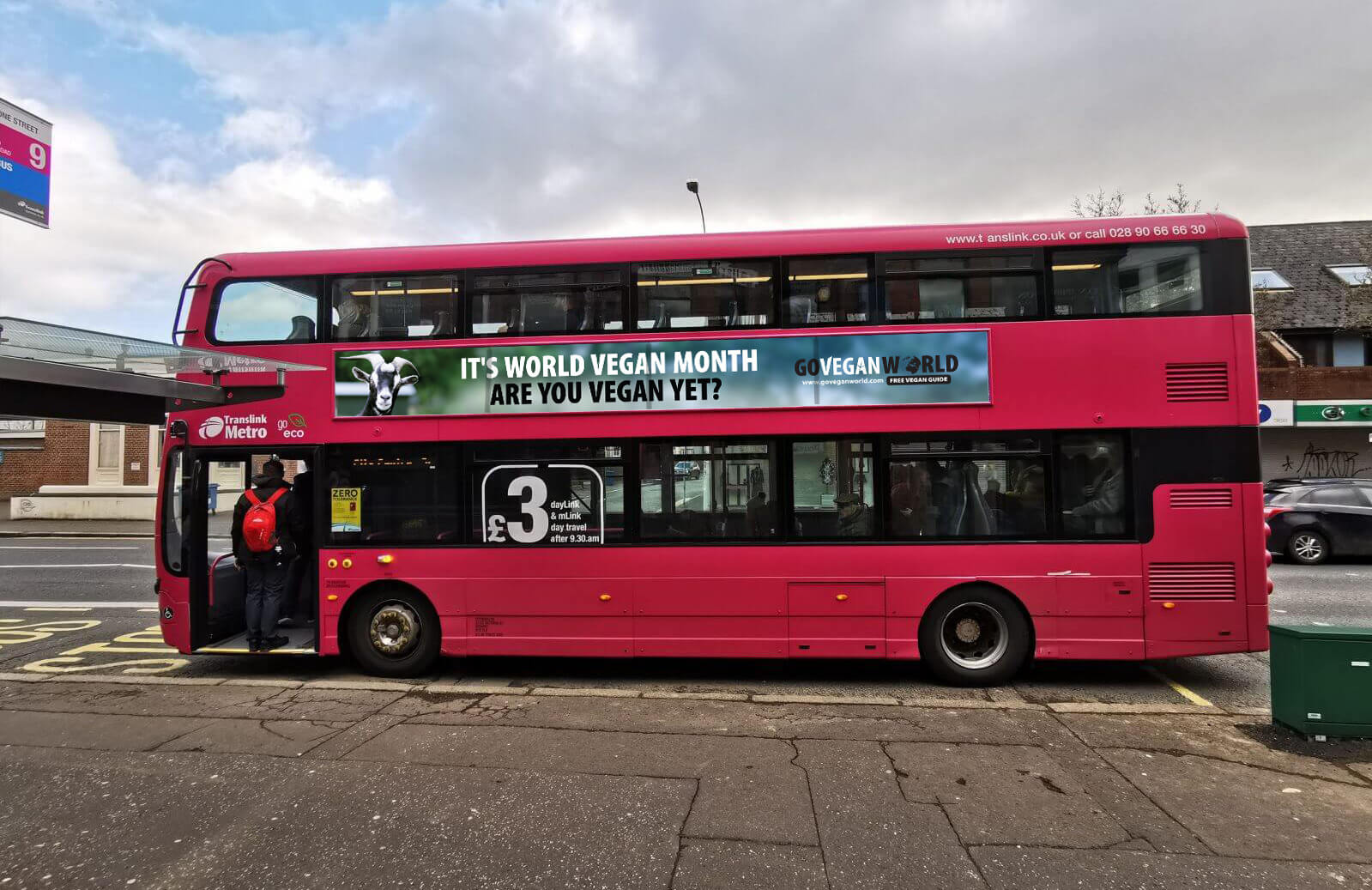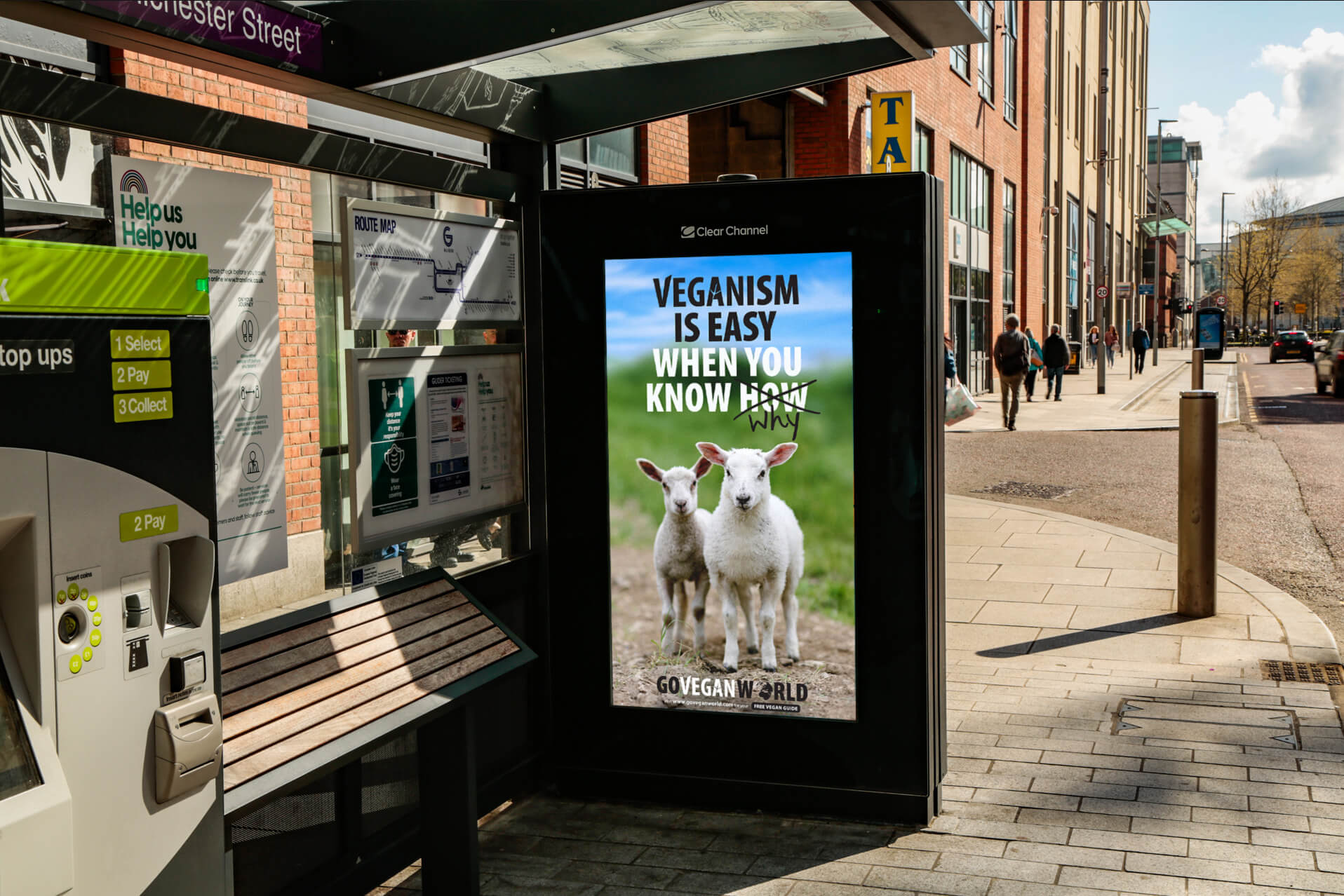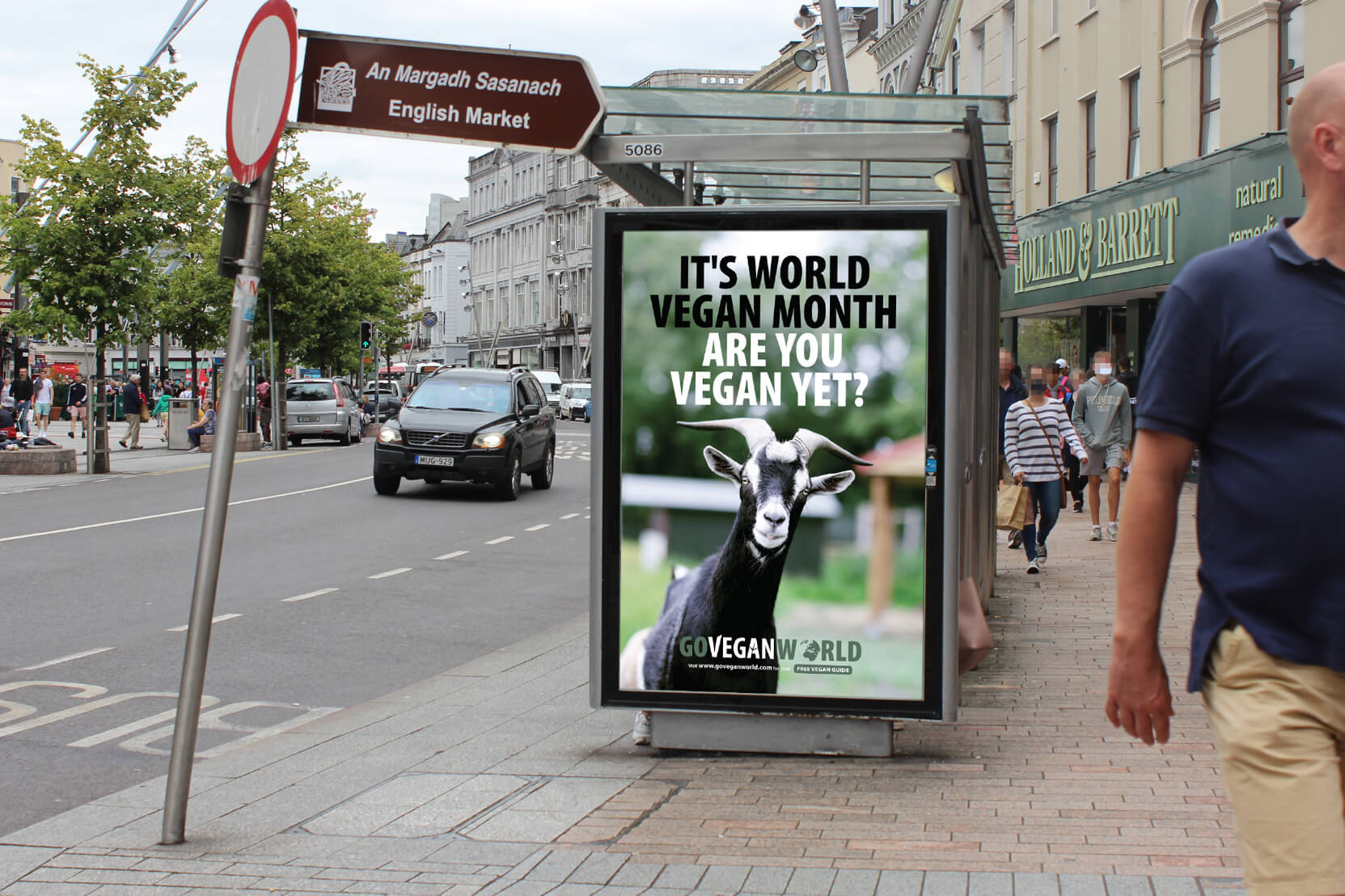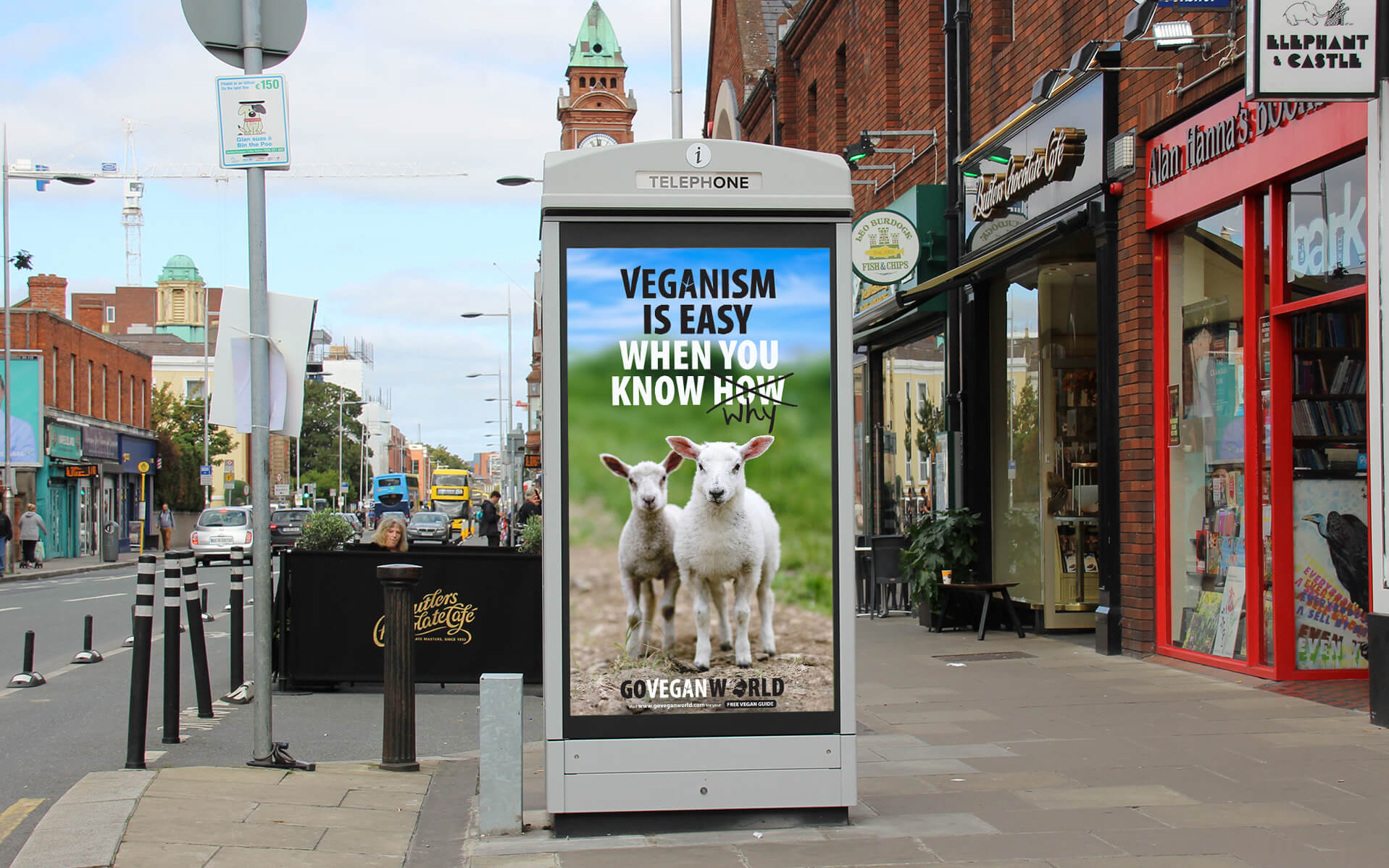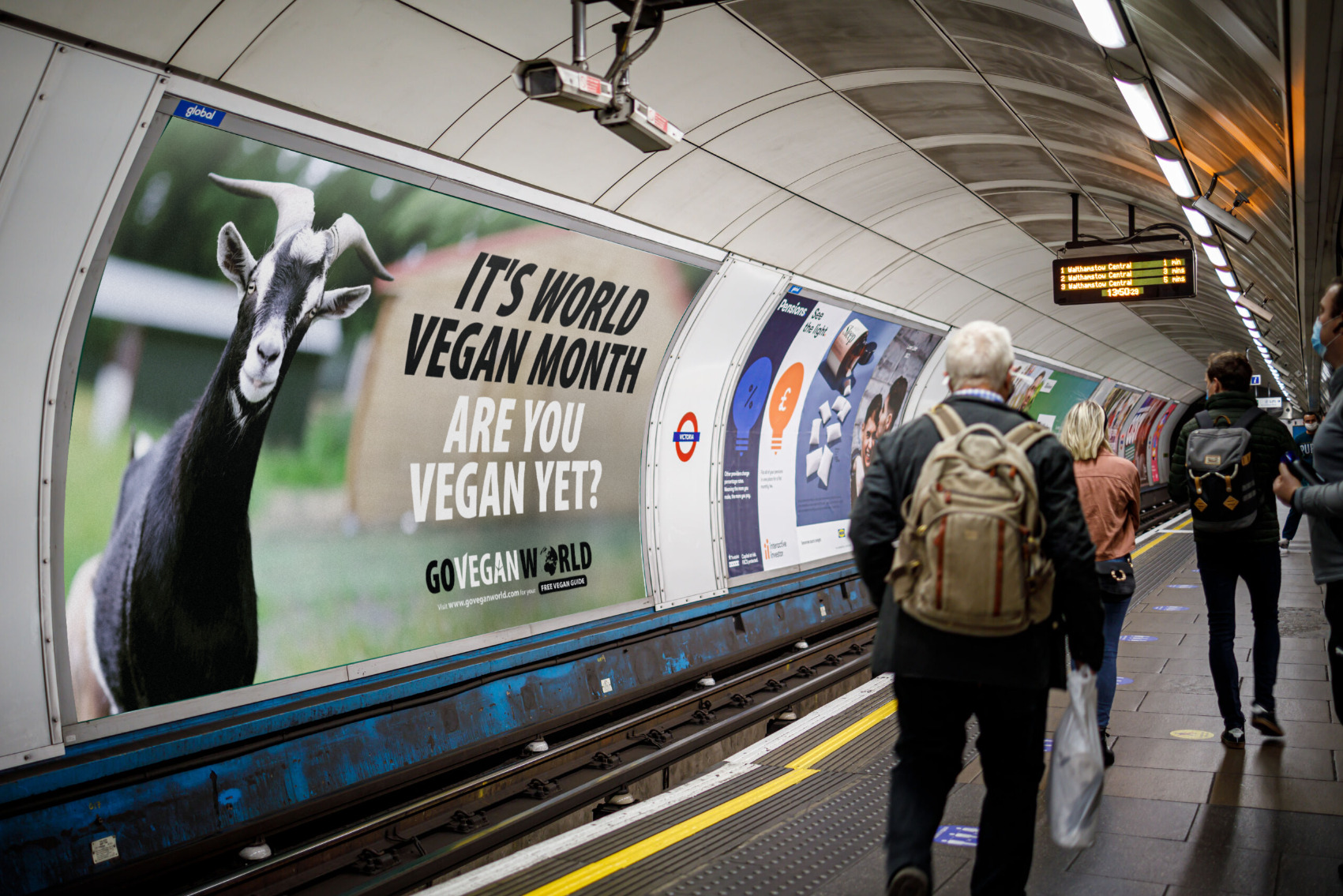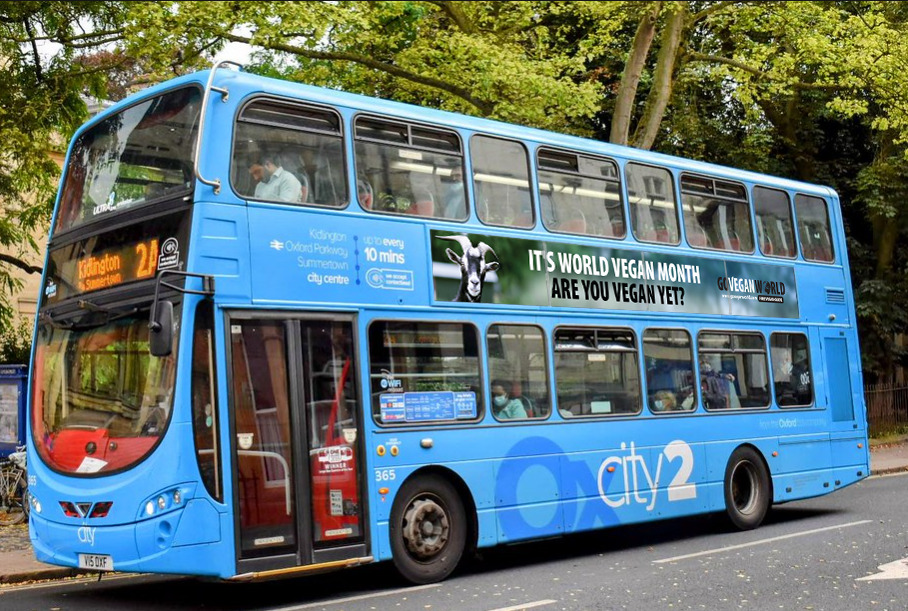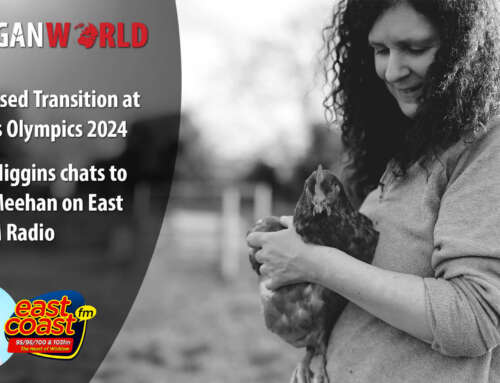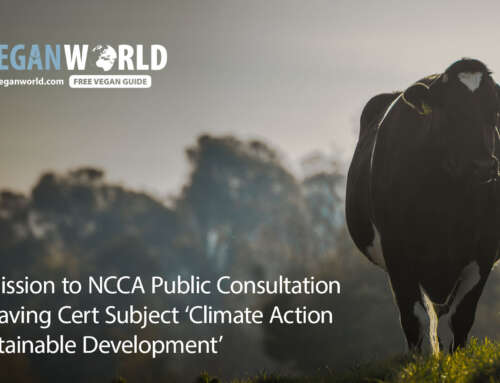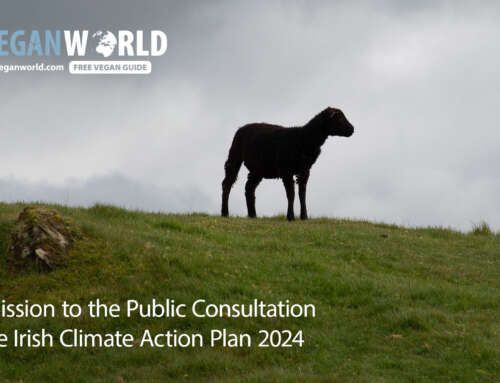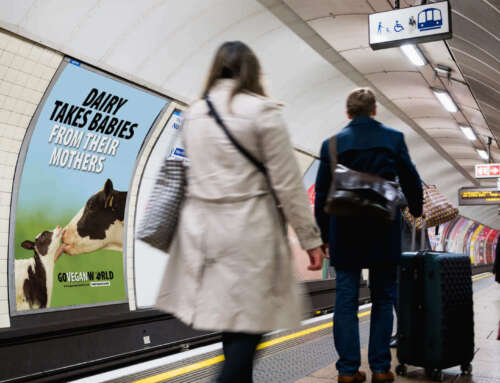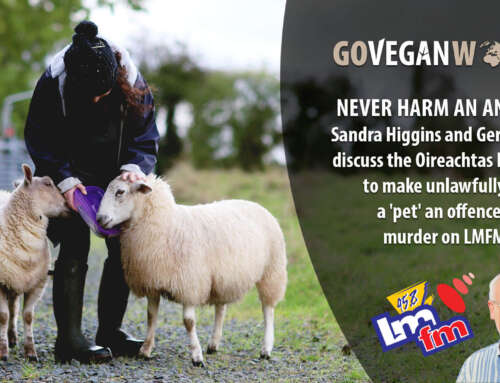World Vegan Month 2023
Every vegan went vegan because they learned information that changed their thoughts about using other animals. The role of Go Vegan World is to publicise that information.
We live in a speciesist culture where it is normal to use other animals as human resources, whilst maintaining the illusion that we are decent people or even ‘animal lovers’. Failure to consider how our use impacts on them, how they feel, or even to acknowledge that they can feel, are necessary precursors to being able to use their bodies and lives. The industries that profit from animal use keep the facts of that use hidden from their customer base. They distort the misery and violation that is routinely inflicted on the animals they use and kill for profit. They also stifle any attempt to highlight the environmental impact and human rights exploitation that are inextricably bound to animal use. Vegan education is the provision of factual information to the public that challenges the socio-cultural norm of animal use. It is a vital component of the animal rights movement.
The beliefs that enable a non-vegan world are that other animals are less worthy than humans; that they are our property; that we are entitled to use them even though our use of them is unjust, hurts them and kills them. Grotesquely, the industry manages to persuade the public that breeding and killing other animals for food, clothing, entertainment, research and labour is in their interests and that the people working in these industries are good and caring to the animals who suffer and die at their hands. The false idea that animal products are essential for human health and that plant diets are lacking in nutrition, also serve to maintain human consumption of animal products and ensure a steady income to the animal agricultural industry at enormous cost to other animals, human health and the environment.
Only a few, simple facts, are required to change our perception from speciesist to vegan:
- Animal Sentience
Other animals have sense organs. They see, hear, smell, taste, and touch. In fact, there are many examples of species whose perceptive abilities are vastly more complex than ours. Like us, other animals have brains. They use their brains to make sense of the information in their environment through their senses. They feel cold, tiredness, hunger, frustration, enjoyment, loneliness and fear. The remember the past; they anticipate the future. They value their lives just as much as we value our lives and they want to avoid pain and death. - When we make non-vegan choices, other animals are exploited, suffer and die.
- We can live healthy lives without animal products. A vegan diet can provide all the nutrients we need for human health.
- A well planned, plant-only diet is associated with reduced risk of some of the major causes of human illness and early mortality.
- Eating a plant diet is the single best action you can take to reduce your environmental foot print. A plant diet uses significantly less resources than non-vegan diet. It has a vastly reduced impact on the environment and on biodiversity, causing significantly less emissions, pollution , wildlife, food emissions, water use, pollution, and land use. Plant based and non-animal agriculture are sustainable, feasible methods of farming.
Go Vegan World provides information that challenges the beliefs that enable a non-vegan world. We aim to reach the greatest number of non-vegan people so that they too have the opportunity to become vegan. Most vegans wish that we had accessed this information earlier.
Once you understand the implications of living as a non-vegan, and decide you no longer want to participate in the injustice of animal use, it is easy to change how you eat, dress, and entertain yourself without inflicting harm on other animals. It is important to other animals that you make that decision now.
Our World Vegan Month 2023 campaign is live in Ireland, Northern Ireland and the UK. Look out for our ads on buses, billboards, and the London Underground.

